Publications
Articles, publications, books, tools and multimedia features from the U.S. Institute of Peace provide the latest news, analysis, research findings, practitioner guides and reports, all related to the conflict zones and issues that are at the center of the Institute’s work to prevent and reduce violent conflict.
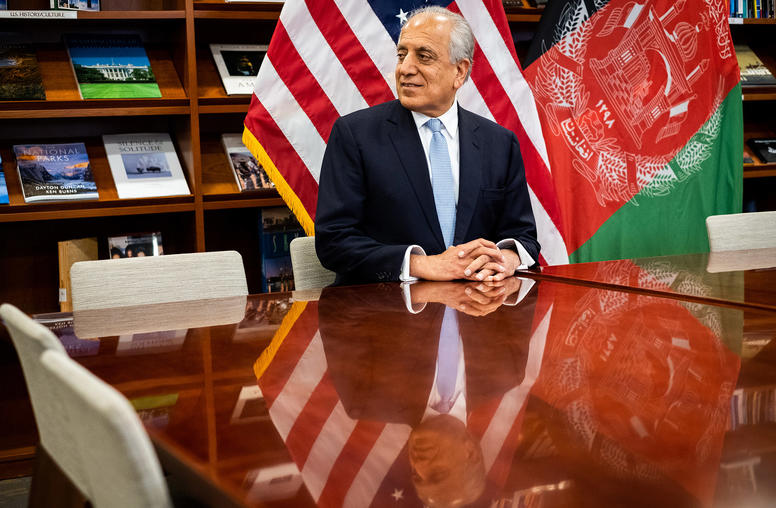
Afghan Talks Are Historic Chance for Peace, Says Top U.S. Negotiator
Afghan peace talks that began in Doha on September 12 are a “historic opportunity” that could bring a close to four decades of conflict in the country and end America’s longest war, said the U.S. special representative for Afghanistan reconciliation on Thursday. The ongoing talks are the “heart of the Afghan peace process,” said Ambassador Zalmay Khalilzad. “It's important to be fully aware of the significance of this moment, and to recognize its historic relevance.” With a note of a cautious optimism, he said there is hope but still a long road ahead, with many thorny issues to be negotiated.
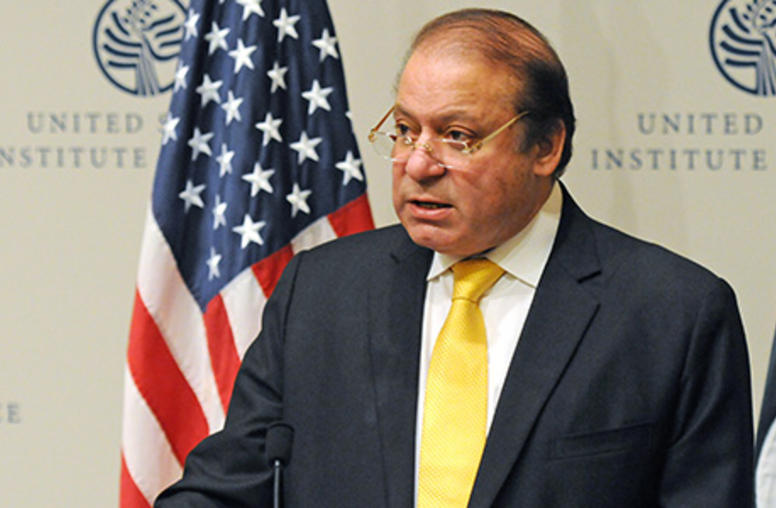
Pakistan’s Sharif Urges Renewed Peace Talks in Afghanistan
A military victory over the Taliban and other insurgents in Afghanistan is unlikely, and the parties to the conflict must try to resolve it through negotiations, Pakistani Prime Minister Nawaz Sharif said today.
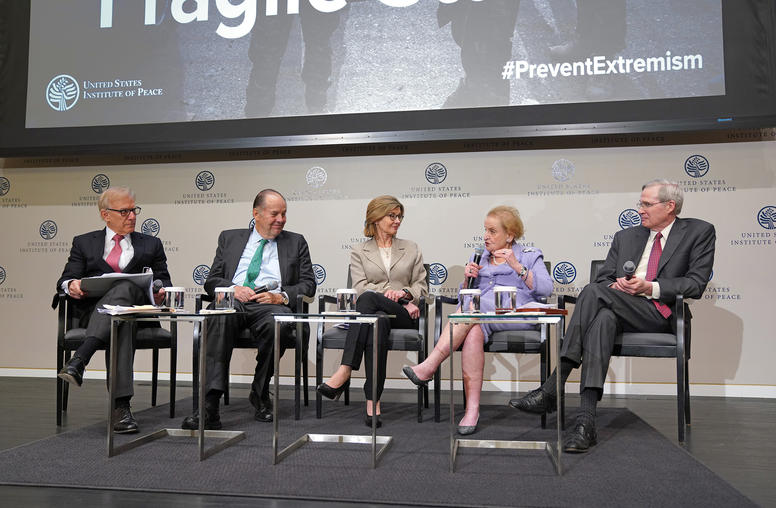
Fragile States and Violent Extremism: New Ideas for a Policy of Prevention
On April 21, suicide bombers in Sri Lanka reminded the world that the end of the Islamic State’s “caliphate” by no means marked the defeat of violent extremism. Indeed, despite trillions of dollars spent and tens of thousands of lives lost, terrorism is spreading. The urgency of checking the ideology behind terrorism, particularly where the ground for it is most fertile, has never been greater, said members of the Task Force on Extremism in Fragile States this week at the U.S. Institute of Peace.
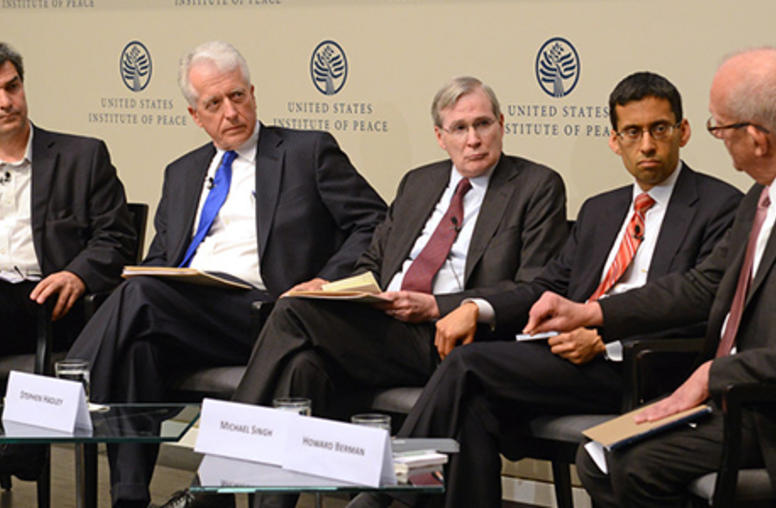
Will U.S., Iranian Politics Undercut a Nuclear Deal – or Save It?
A former Iranian lawmaker and a former member of Congress agreed that the question of whether American politics will give President Barack Obama the leeway he needs to reach a nuclear deal with Iran remains one of the central issues as negotiations resume this week. The Middle Eastern nation and the world’s six major powers face a June 30 deadline for converting a blueprint into a final agreement.
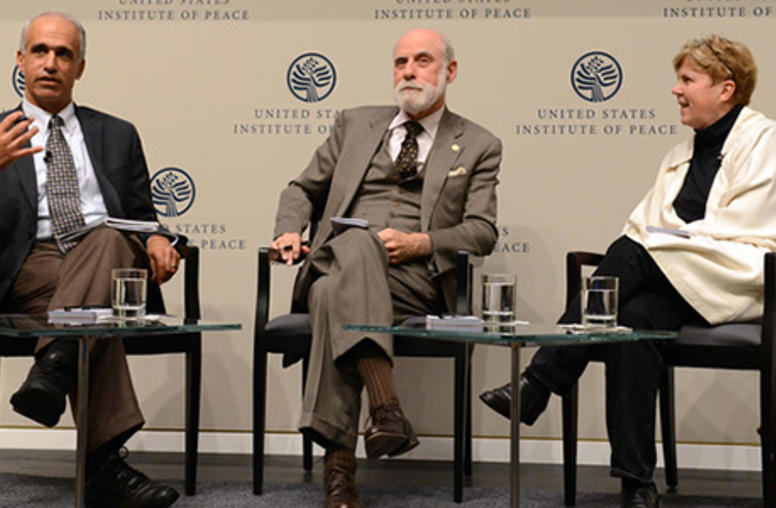
Entrepreneurs Hunt for 'Peace Tech' to Defuse Conflict
When Ukrainian President Viktor Yanukovych fled the country in February in the face of massive protests in the capital Kyiv, major news media made only passing references to Crimea. But Georgetown University fellow Kalev Leetaru had a map tracking protests and incidents of violence. It showed Crimea "really lighting up."
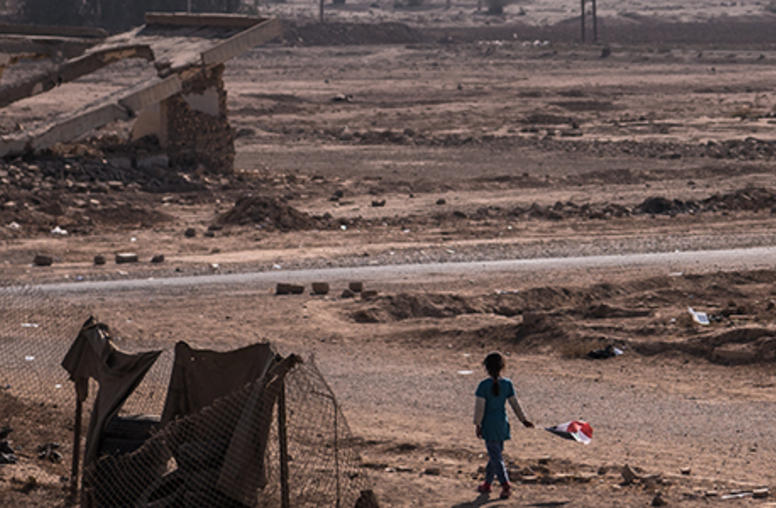
From ISIS to Al-Qaida: The Changing Extremist Threat
The Islamic State may be crumbling across Iraq, but the future prospects of violent extremist groups are far from fading. While ISIS rampaged across Iraq and Syria in 2014, setting up a terror-based regime to impose its will, a revitalized al-Qaida was taking a different, more sustainable approach by grafting itself onto local extremist groups, experts said in a forum at the U.S. Institute of Peace that also examined community approaches to preventing and countering violent extremism. Al-Qaid...
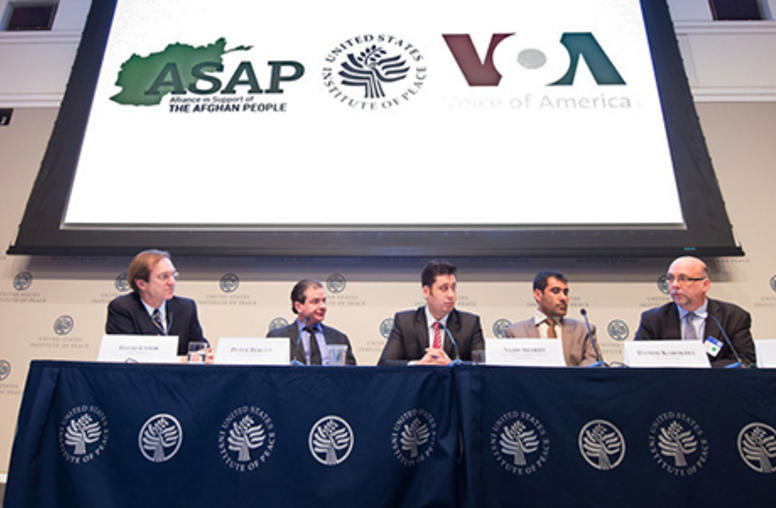
Election Prospects Give Afghanistan a Shot at Future Beyond 2014
James Dobbins, the U.S. Special Representative for Afghanistan and Pakistan, touted televised debates of presidential candidates, millions of new voters registered legitimately, and other visible signs to argue that Afghanistan has a chance at scoring the country’s first peaceful and democratic transfer of presidential power next month.
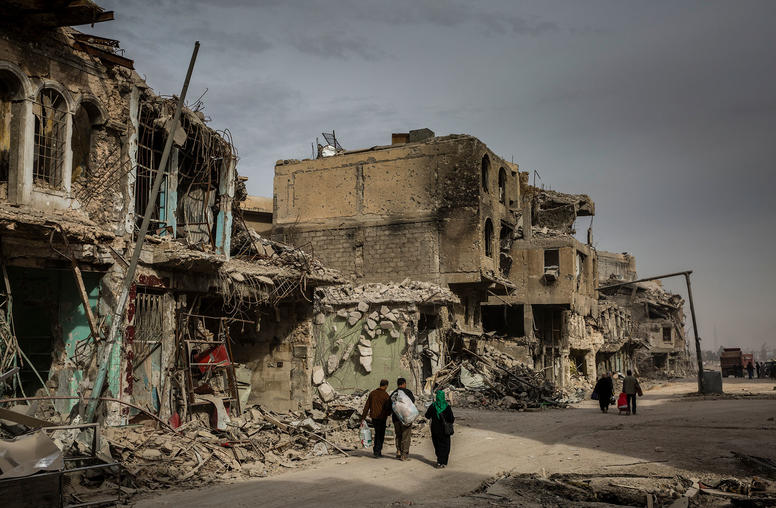
To Stabilize Iraq After ISIS, Help Iraqis Reconcile
An international conference opens in Kuwait Monday to plan ways to rebuild Iraq and secure it against renewed extremist violence following the three-year war against ISIS. A USIP team just spent nine days in Iraq for talks with government and civil society leaders, part of the Institute’s years-long effort to help the country stabilize. The Kuwait conference will gather government, business and civil society leaders to consider a reconstruction that Iraq has said could cost $100 billion. USIP’s president, Nancy Lindborg, and Middle East program director, Sarhang Hamasaeed, say any realistic rebuilding plan must focus also on the divisions and grievances in Iraq that led to ISIS’ violence and that still exist.
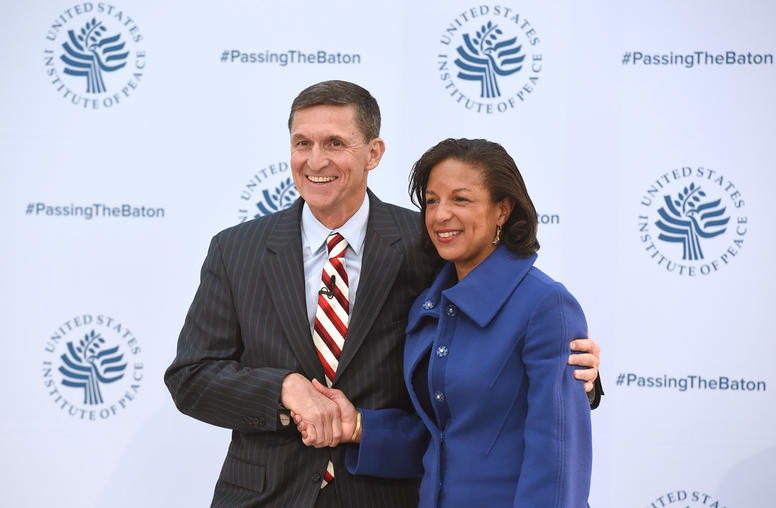
Kerry, Rice, Flynn Talk Foreign Policy
Secretary of State John Kerry and National Security Advisor Susan Rice and designated incoming National Security Advisor Michael Flynn are among the Cabinet-level and other senior foreign policy and national security figures from the outgoing and incoming administrations gathering on Tuesday, Jan. 10 at USIP for a day of discussion about the global challenges facing the United States in the coming months and years.
Former National Security Adviser Hadley visits the Hill, Briefs on USIP missions in Afghanistan, Pakistan
Former U.S. national security adviser Stephen Hadley and other top USIP staff briefed Hill members about a trip they took to Afghanistan and Pakistan this fall.